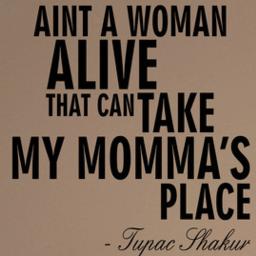
The same drama, when things went wrong we blamed mama Over the years we was poorer than the other little kids I was a fool with the big boys, breakin' all the rules In this song, Tupac talks about the problems that had to be faced by his mother as representative of the problems.Though back at the time I never thought I'd see her faceĪin't a woman alive that could take my mama's place The song also reveals the conditions of struggle that were to be endured by black women in urban areas of America during the eighties. The personal experiences of Tupac find mention in Dear Mama and these can be used to analyze the conditions that have shaped race relations in the America of today. Stephens and Earl Wright II talk of the possibility of using songs such as Dear Mama as a “qualitative data source” (Stephens and Wright).

The importance of this lies in the fact that current policy decisions may be able to gain from rap music like the one that Tupac produced.
#LYRICS FOR 2PAC DEAR MAMA SKIN#
The anger that Tupac feels towards the society for making him and his mother face hardships because of their skin color comes through in Dear Mama. When he says that despite the fact that his mother was a “crack fiend”, she “always was a black queen” (Shakur), he means to understand the troubles that she went through and also the paths that she took to avoid those troubles.
#LYRICS FOR 2PAC DEAR MAMA CRACK#
Afeni Shakur was addicted to crack and this is referred to in Tupac’s song. Poverty in many cases also coincided with the use of drugs and other substances that were banned. The song incorporates the problems that the poverty of the African Americans could lead them to. The personal dedication of the song to his mother is a proof of the fact that the song owes its existence to the personal experiences that Tupac went through as a child.

Tupac is aware of his personal position within the historical times that he was a part of.

His songs were an exposition of the racist mentalities that were prevalent in the minds of people in the eighties. The analysis of history would lead one to believe that the destructive potential that racism had in the United States of America was channelized into creating the songs that Tupac did. A historical analysis of the song would thus, lead one to believe in the importance of the song that speaks of the poverty that people of a certain race had to suffer and the hardships that they had to undergo as a result of the discrimination that they had to face. An understanding of the hardships that were faced by African Americans in the eighties is clearly outlined in these lines when one takes the context of the song into account. In these lyrics, there is an understanding of the fact that the poverty and hardships that were faced were not a reflection merely of class but also of race. People who were born into the eighties were thus born into an environment of hatred that Tupac speaks of in his song when he says, Though back at the time, I never thought I'd see her face Ain't a woman alive that could take my mama's place Suspended from school and scared to go home, I was a fool with the big boys, breaking all the rules I shed tears with my baby sister (Shakur). Many movements like the Black Panthers Party had recognized the rise of racism in American society during the seventies but could not do much during the eighties when it was finally dissolved.


 0 kommentar(er)
0 kommentar(er)
